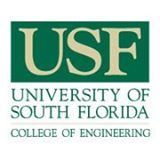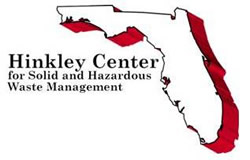Project Title: Phase II Bioenergy Production from MSW by High Solids Anaerobic Digestion

PIs: Sarina J. Ergas (sergas@usf.edu), and Qiong Zhang (qiongzhang@usf.edu)
Project Description: High solids anaerobic digestion (HS-AD) is widely used in Europe and is gaining popularity in the US to produce biogas from the organic fraction of municipal solid waste (OFMSW), such as yard and food waste. HS-AD advantages include faster waste degradation and higher biogas quality than conventional or bioreactor landfills, lower water use and leachate production than liquid AD and production of a nutrient rich compost fertilizer product. The overall goal of this project is to improve the environmental and economic sustainability of HS-AD of OFMSW in Florida. Phase I of this project focused on: 1) improving methane (CH4) yields from lignocellulosic waste by bioaugmentation with microbial communities from pulp and paper sludge, 2) evaluating the most appropriate technologies for implementing HS-AD of MSW in Florida and 3) identifying potential sites, collaborators and funding sources for a HS-AD demonstration project in Florida. Specific objectives for Phase II (Fig. 1) are to:
- Investigate the performance of HS-AD of OFMSW with varying substrate ratios (yard, food, biosolids) and temperatures (mesophilic, thermophilic);
- Apply life cycle analysis (LCA) to guide the selection of waste sources and operating conditions for HS-AD; and
- Compare HS-AD with other waste management options (e.g., landfilling, waste to energy (WtE), composting) to ensure economic and environmental sustainability. Results from this project will be disseminated widely to a variety of stakeholders including FDEP, USEPA and county regulators, county solid waste directors and their staff, private waste management companies and other associated industries, university and K-12 students, engineers, operators, scientists and community members.
Results from this project will be disseminated widely to a variety of stakeholders including FDEP, USEPA and county regulators, county solid waste directors and their staff, private waste management companies and other associated industries, university and K-12 students, engineers, operators, scientists and community members.
 |
 |